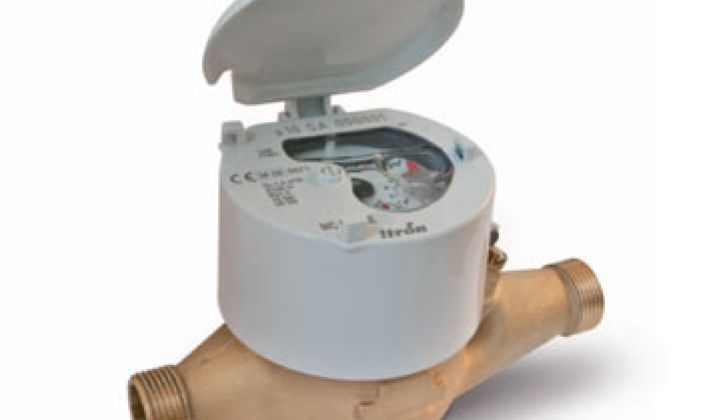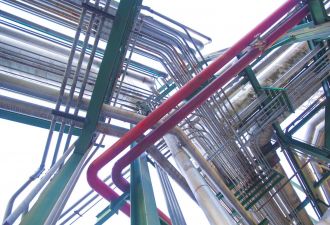Utilities are treading carefully into smart metering these days, whether in the domain of gas, electricity or water. The slow moves mean that vendors increasingly see smaller contracts as notable victories.
In water-constrained Australia, advanced water metering is a growing market as municipalities look to increase efficiency in water use. The result is that the largest cities in Australia -- Melbourne and Sydney -- are contracting for new water meters.
The win is potentially a total of millions of meters. If you give a quick read of the press releases, savvy meter manufacturers champion their large advanced metering contracts in all corners of the globe. But sometimes, on closer inspection, the contract -- or the technology delivered -- is not what it seems.
The technology for gas and water is not necessarily as advanced as the smart meters in the electricity sector. In Australia, some of the biggest recent headlines aren’t about true smart grids (or even smart meters at all), if "smart" is defined as embedded intelligence, capable of two-way communication.
Whether gas, electric or water, nearly every very large smart meter award in recent memory goes to a consortium of companies. There are few huge contracts these days where just one vendor is the sole recipient (Silver Spring’s contract with ComEd earlier this year is a notable exception).
Down in Australia, Itron recently announced that it won a contract for Melbourne regional water companies to provide advanced water meters. A few weeks earlier, Elster issued a nearly identical announcement.
When it comes to smart water meters, "smart" is not exactly the same as it is with electric smart meters, which offer two-way communication. Many smart water meters use AMR technology, which offers one-way digital reads.
"With electric meters, there is a greater delineation between legacy AMR systems and true 'smart’ two-way systems and the applications which they enable,” said Zach Pollock, smart grid analyst with GTM Research. “While electricity and water are both essential commodities, electricity must be produced, whereas fresh water is a natural resource that has traditionally been undervalued and supplied without much afterthought. Furthermore, the marginal cost of producing electricity increases exponentially near the end of the supply/generator stack, making advanced smart grid applications that can shave, shift or mitigate peak demand lucrative for utilities, and ultimately resulting in faster payback periods for two-way electric systems -- in addition to the billing related cost savings -- than for two-way water systems.”
Itron noted that its EverBlue Cyble radio module for water and gas meters, which is what is being used in the majority of the Sydney deployment, could be upgraded into a two-way system, according to Sheena Trumble, Itron general manager in Australia. Elster is providing its V100/V300 volumetric water meters, which can be upgraded with AMR technology if the utility chooses.
Overall, the norm is to offer one-way digital systems for water that can be upgraded down the road. “With water, the initial focus has been on conservation and leakage detection, making one-way systems sufficient for the time being,” said Pollock.
Earlier this year, Itron won a contract with Sydney Water to supply 40,000 meters per year for three years, with a possible seven-year extension. In a release about the agreement, Itron noted that Sydney Water serves more than 4.6 million people, although the initial contract will be for only 120,000 meters.
The issue of actual contract size is hardly limited to water meters, Australia or any particular vendor. In Brazil, where vendors salivated over the potential of more than 60 million meters being replaced by smart meters, the government ruled last month that smart meters would only be mandatory for new customers and would remain optional for others. Many companies had already issued vague press releases about their sizeable wins in the Brazilian market, with more to come. The “more to come” and even the size of some of the initial contracts now seems up for some debate. China, like Brazil, is another country where international companies are forging alliances to access the market, although everyone is still waiting for a big win.
In Europe, which has mandated smart meters by 2020, smart grid spending is expected to grow by €6.8 billion ($8.3 billion) per year by 2016, according to GTM Research. Although some countries, like Germany, are rolling back on smart grid spending overall, there are still expected to be 100 million smart meters in coming years. In the U.S. municipal market, 70 percent of utilities could install smart meters in the next five years, according to GTM Research.
Even with millions of smart meter contracts potentially up for grabs in the next eighteen months, utilities will likely hedge their bets by choosing multiple technologies. In March, Iberdrola picked seven companies to supply meters for its rollout of one million smart meters. A pilot is also no guarantee of a win. Political upheaval and public backlash against all things related to utilities also have a way of throwing off even the most well-researched forecasts.



